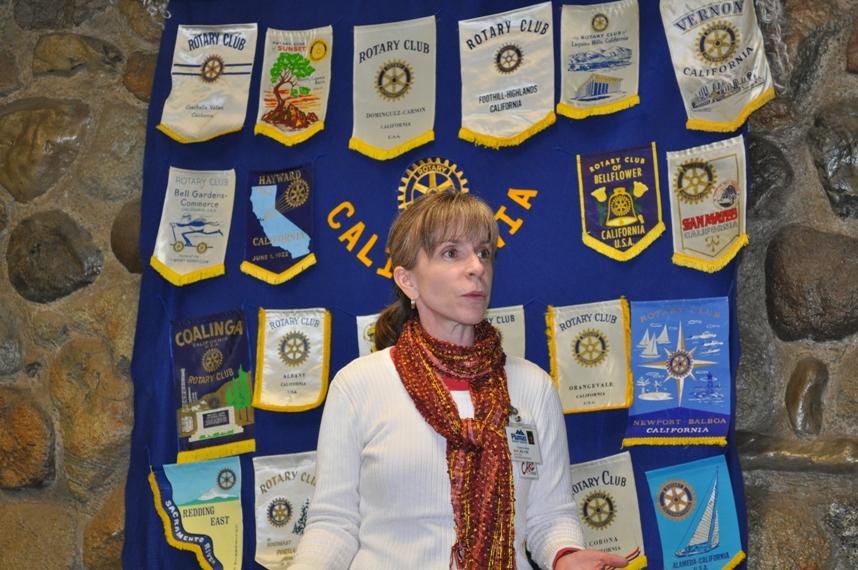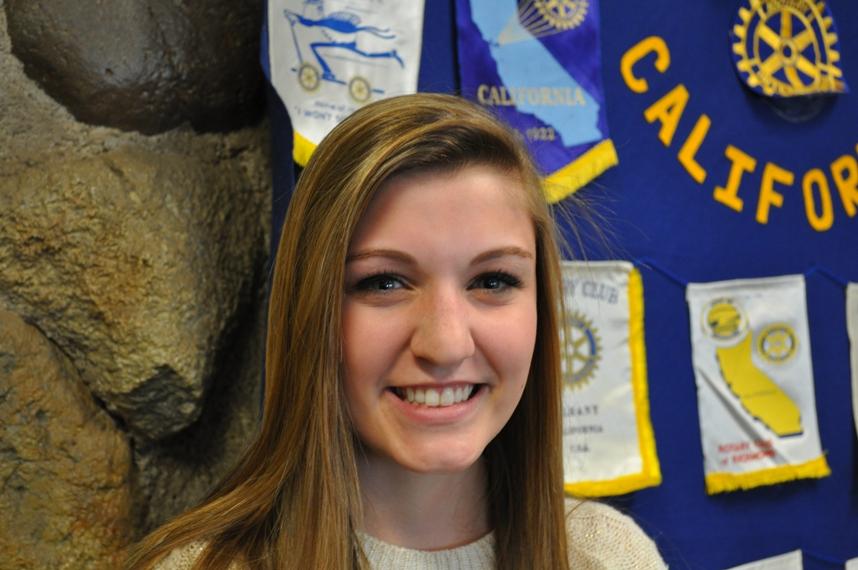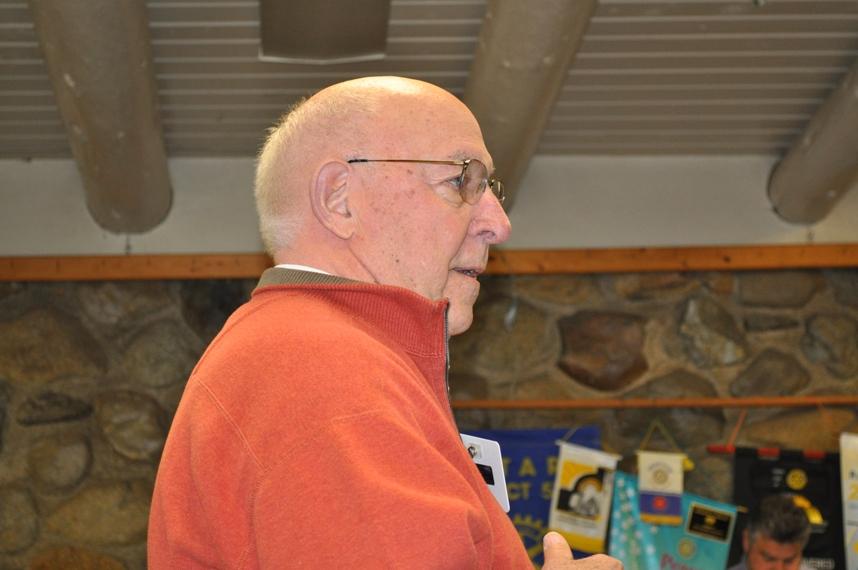Kay Lund
Posted by Johnny Mansell
on Apr 07, 2014
March 31st 2014

Our featured speaker for the March 31 Rotary Meeting was Kay Lund, Registered Dietician at Plumas District Hospital and a Certified Diabetic Educator. In other words, she is the go-to person for health related dietetic needs and your questions about how to manage diabetes. Here is a recap of some of the things we learned from her highly informative program.
The most serious form of diabetes is Type1, formally known as Juvenile Diabetes, is caused when the body cannot produce insulin, a hormone that is needed to convert sugar, starches and other food into energy needed for daily life. Type 1 cannot be cured but it can be managed through blood glucose control, insulin management, exercise, and good nutrition. If not managed properly it can lead to hospitalization and even death.
Type 2 diabetes effects 25 million persons, a number directly related to both juvenile and adult obesity. While the seriousness of the disease should not be underestimated, it can be managed with diet, exercise, stress control and a good support system. If not controlled well by diet and exercise, medication may be required. Common symptoms of diabetes include frequent urination, extreme thirst, extreme fatigue, cuts and bruises that are slow to heal and blurry visions. Some symptoms of type 2 diabetes are so mild they go unnoticed. Some of the risk factors for diabetes are being overweight, an inactive life style and being age 45 or over. If you would like to know whether you have, or are at risk for, diabetes talk with your doctor. You can also have attend one of the biannual PDH Health Fairs which will include and A1C assessment test.

Kathleen Morrison was our visiting High School Senior.


Bill Elliott and Bob Edwards presenting on behalf of the Rotary Foundation.

